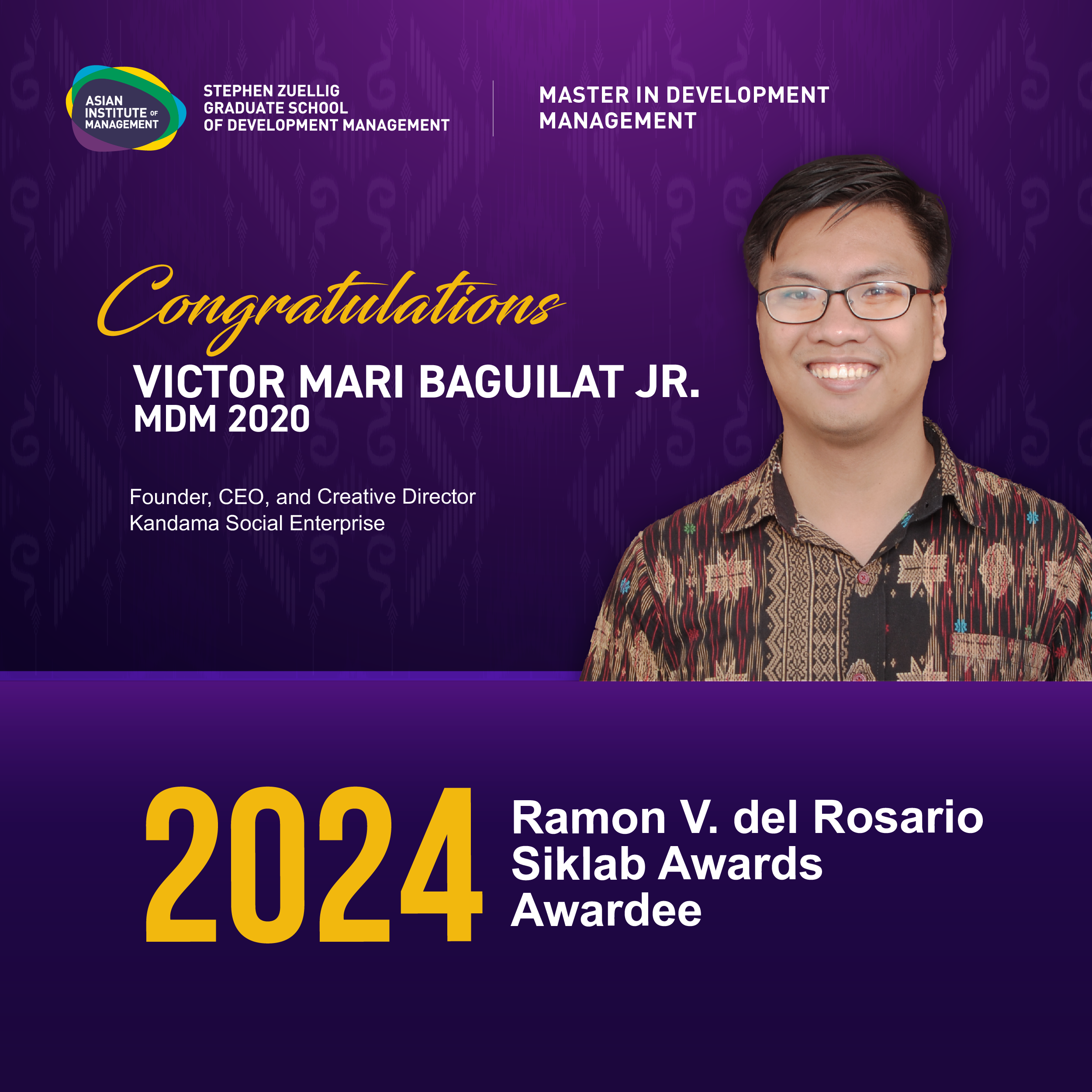Finance does not immediately come to mind when one thinks about sustainability. Many associate sustainability with efforts to help the environment, like recycling or reducing pollution. However, the finance sector has recently started to incorporate sustainability into their operations through a process known as Sustainable Financing. This process, though new, is starting to change the ways businesses operate and the ways financial institutions lend money. This is exactly what Professor Felipe Calderon, CPA, CMA, PhD, and Head of the Asian Institute of Management Washington SyCip Graduate School of Business tackled in his trial class on March 10, 2022.
In the highly productive and engaging trial class held by the Stephen Zuellig Graduate School of Development Management (SZSDM), Professor Calderon gave participants a glimpse into his Sustainable Finance in Disaster Risk Management class. He illustrated the power that the financial sector has over business. Throughout the session he stressed that banks, as financers, have the power to influence companies and businesses to adapt sustainable practices.
Finance Meets Sustainability
As the current status quo takes a toll on natural resources, banks and financial institutions are using the leverage they have over businesses to encourage companies to respond to environmental challenges. Financial institutions are starting to put incentives in place for businesses that decide to incorporate a more green and sustainable approach to their operations. These practices by banks and other financial institutions promote sustainable and responsible investment in the hopes of reversing the effects of irresponsible capitalism, as well as preventing potential problems in the future.
People, Planet, and Profit
Financial institutions are also taking a more holistic approach when it comes to granting loans and investments. Based on the Triple Bottom Line concept, the ability to generate profit is not the only measure to determine if a company is eligible for loans and investments. Rather, a company must also have significant contributions to environmental sustainability that is evident in their daily operations. Banks also take into consideration the welfare of the employees of companies requesting for financial support, by looking into workplace practices and the treatment of employees.
While the implementation of Sustainable Finance is still in its early stages, knowledge of this increasingly important concept serves as an advantage for business owners and future changemakers. Through the Executive Master in Disaster Risk and Crisis Management program, students will have the opportunity to take classes on Sustainable Finance and understand its connection to the different facets of disaster risk and crisis management.
The high turnout for this Trial Class suggests that this topic is of interest and may spur more classes of this nature in the future. To stay updated on our future Trial Classes and the Executive Master in Disaster Risk and Crisis Management Program, you may visit our website devatwork.aim.edu or send an email to emdrcm@aim.edu.






